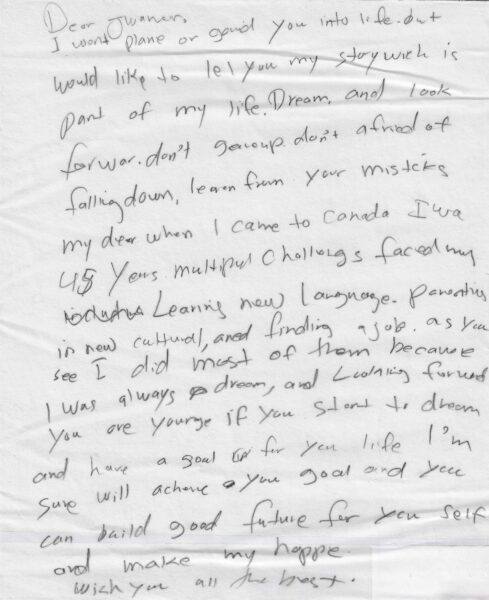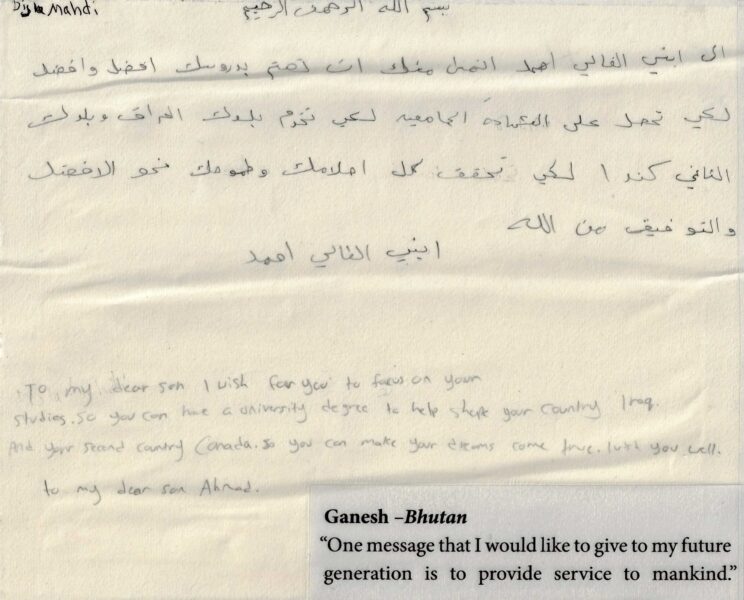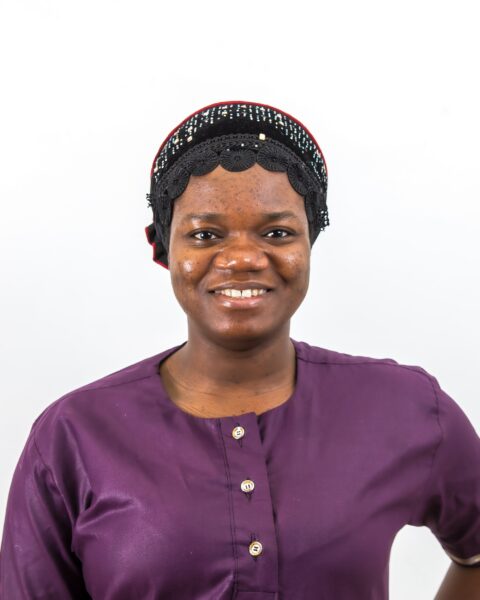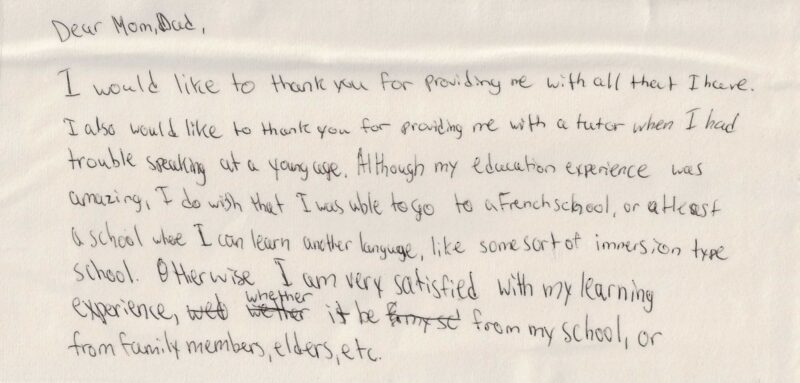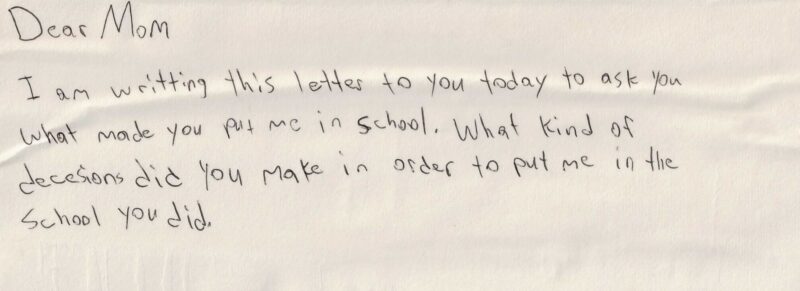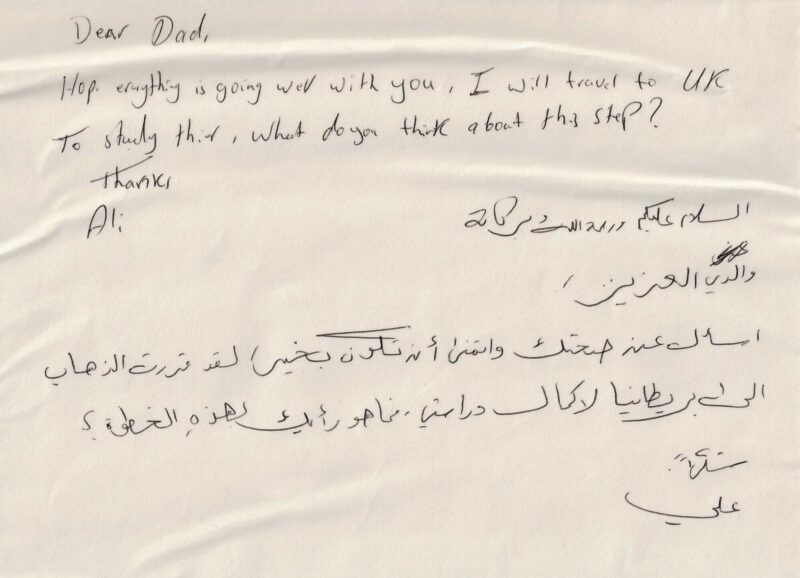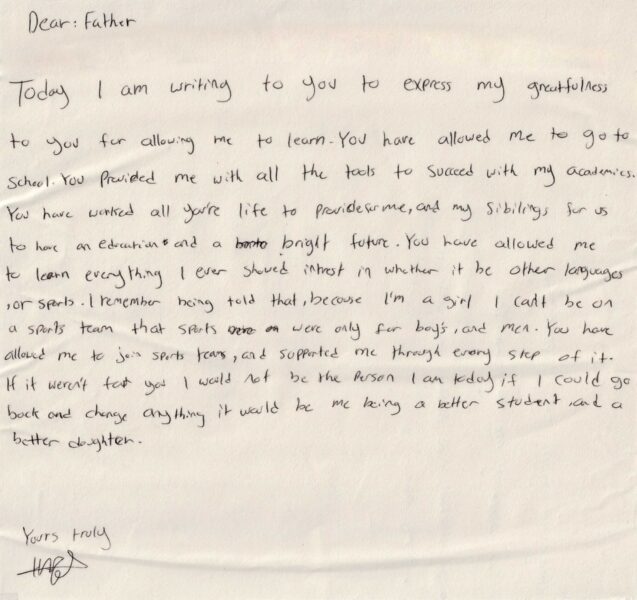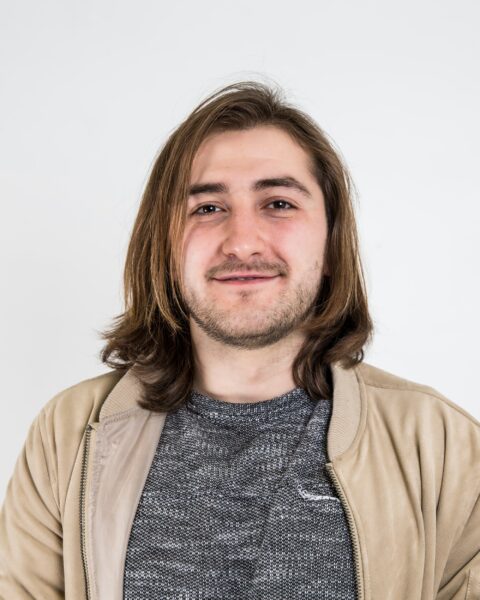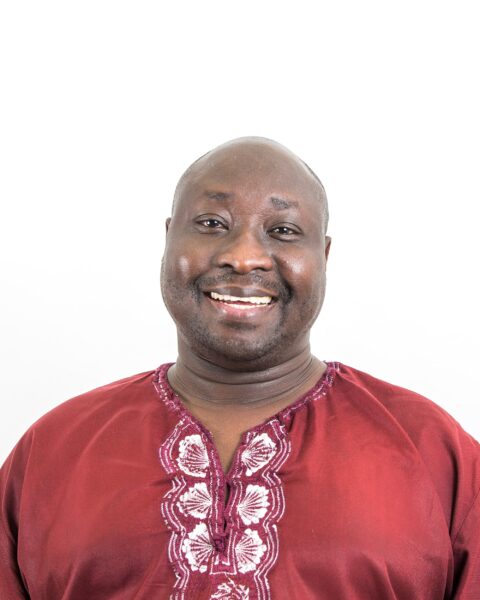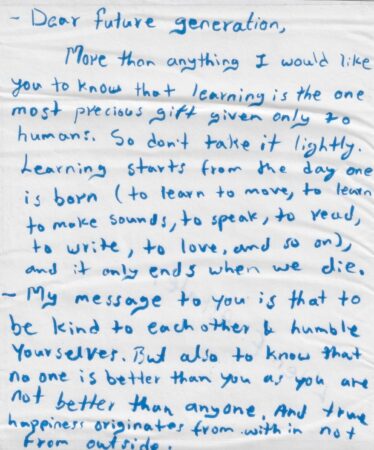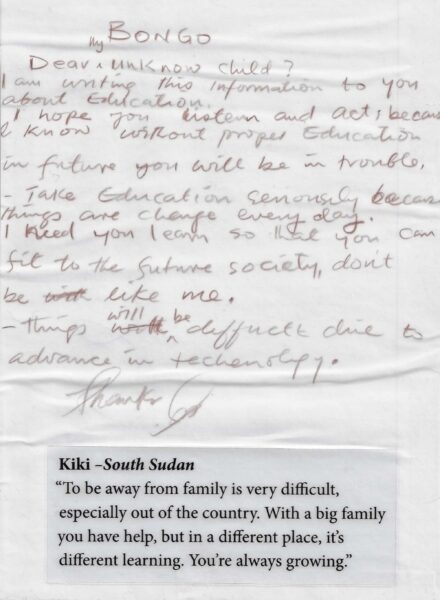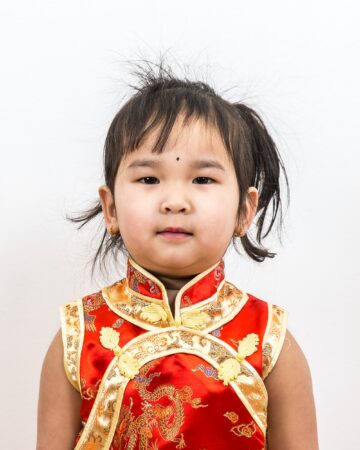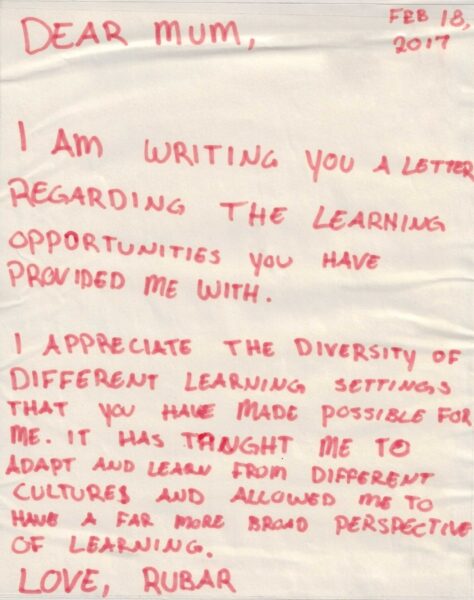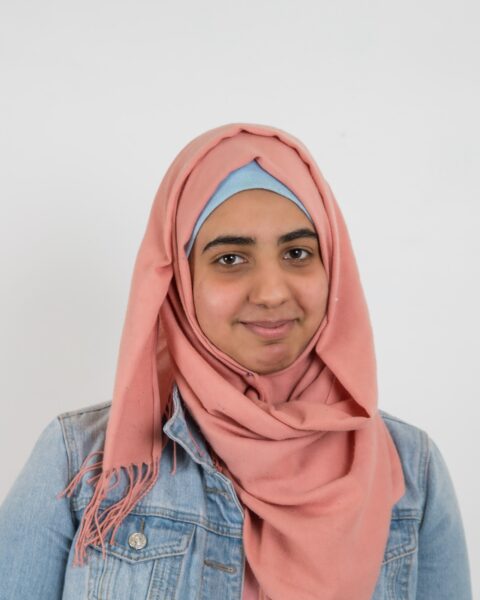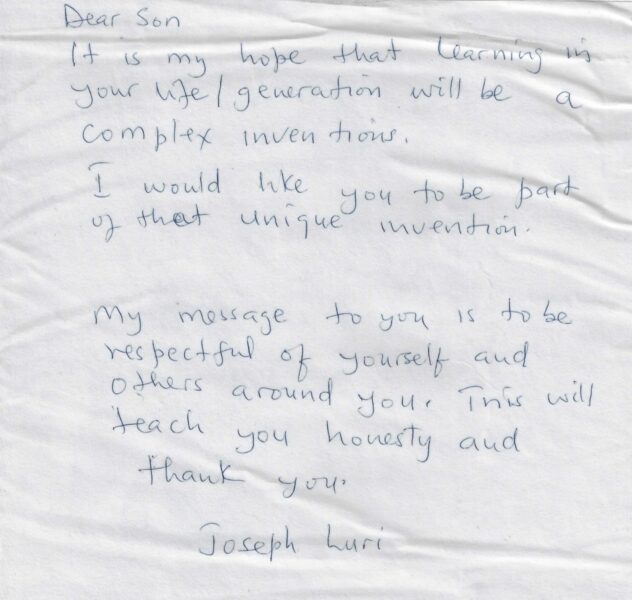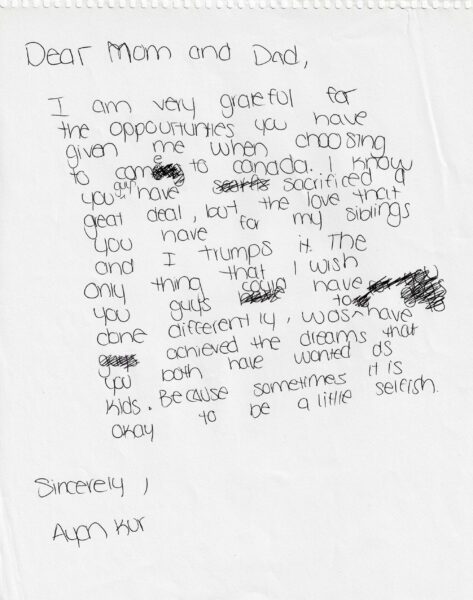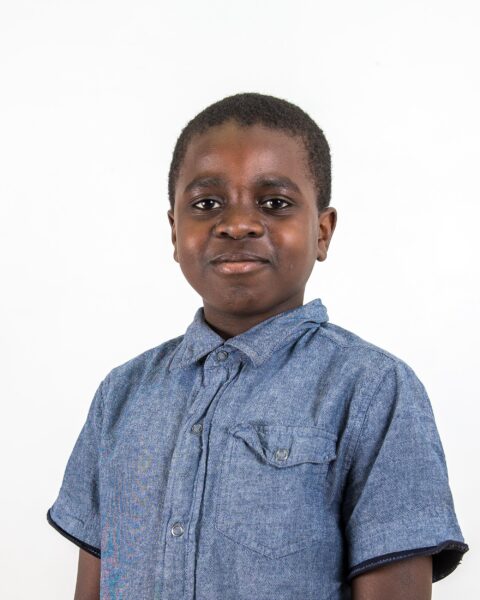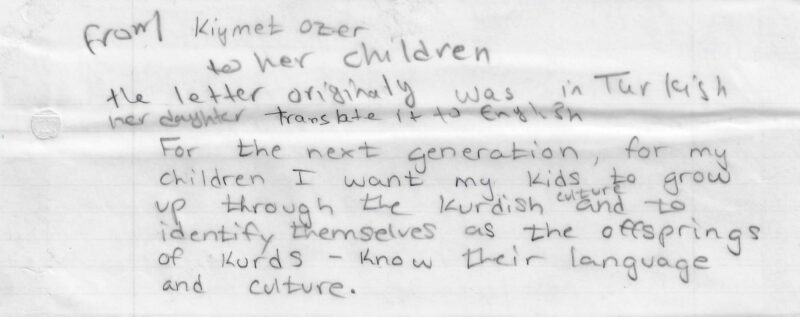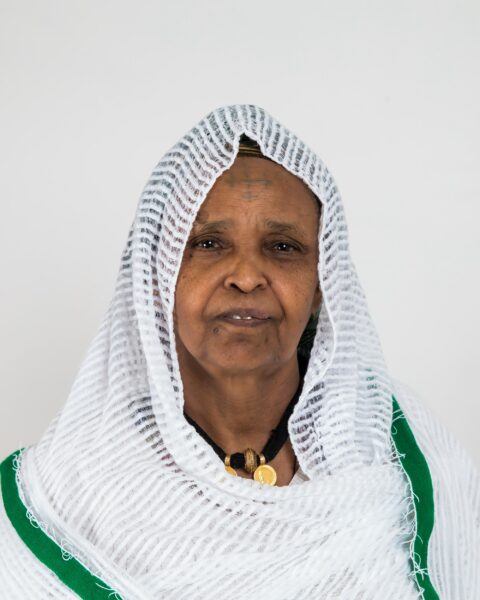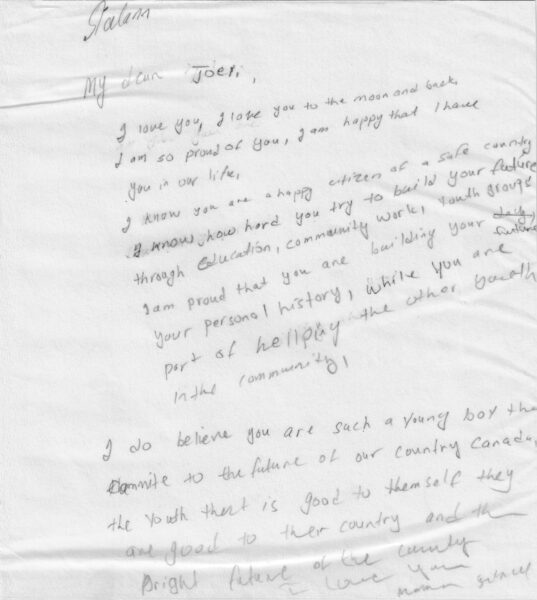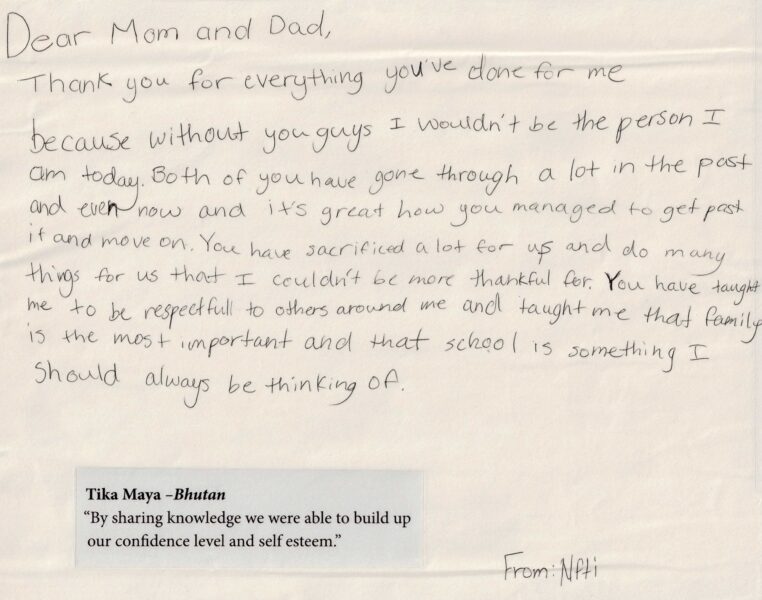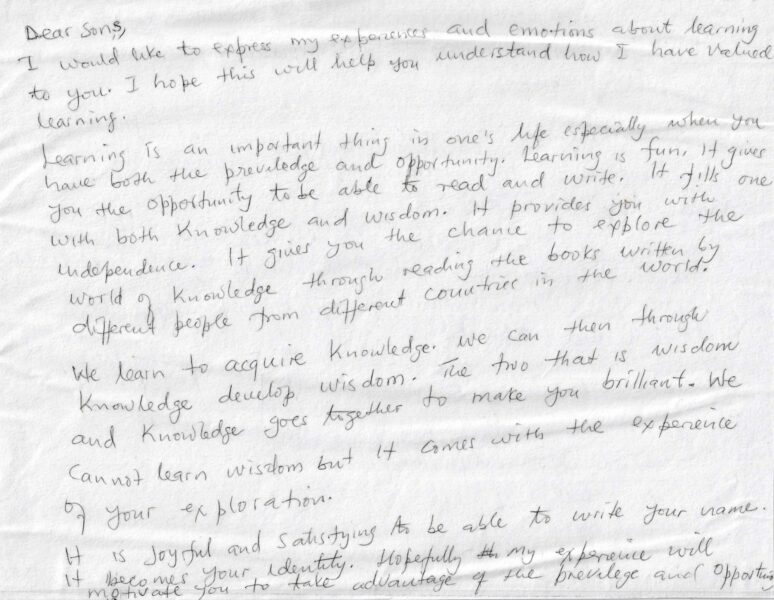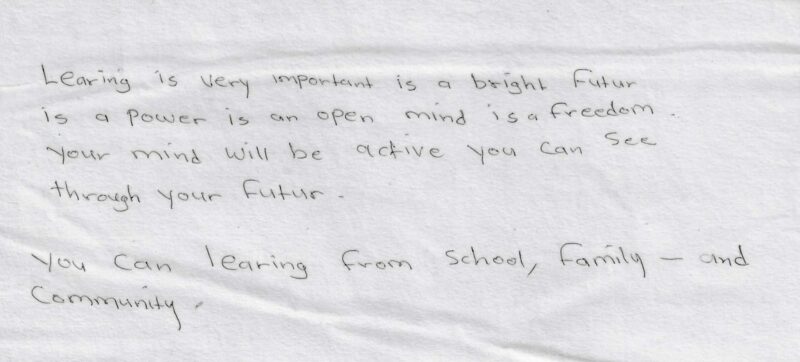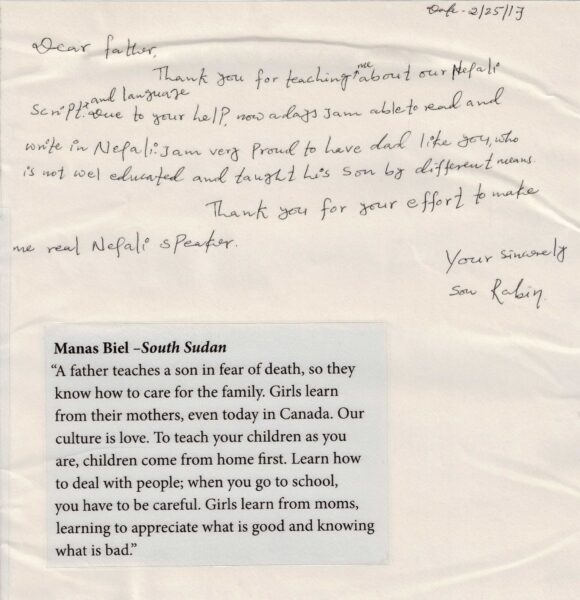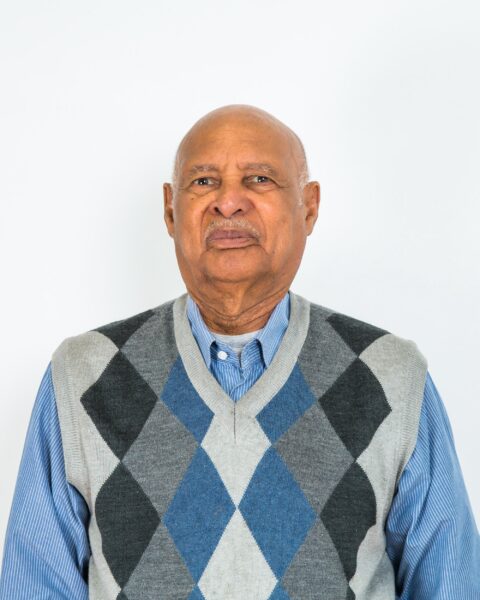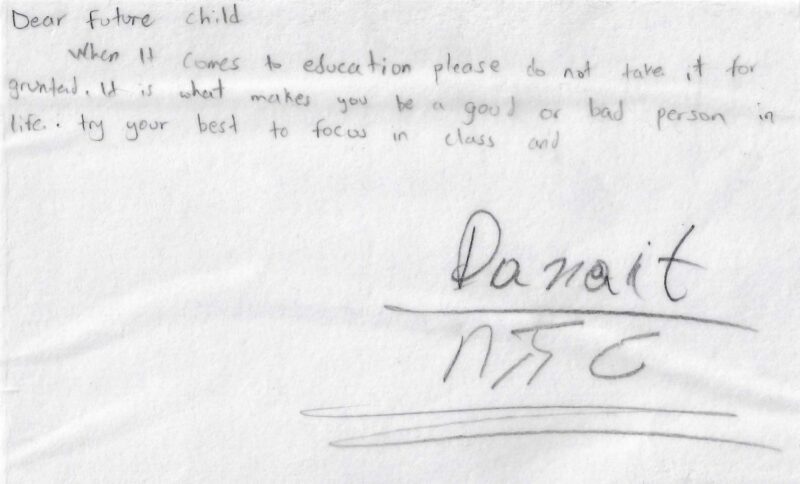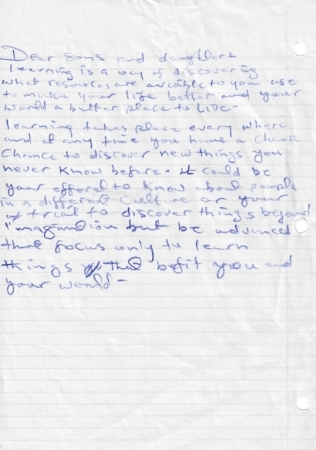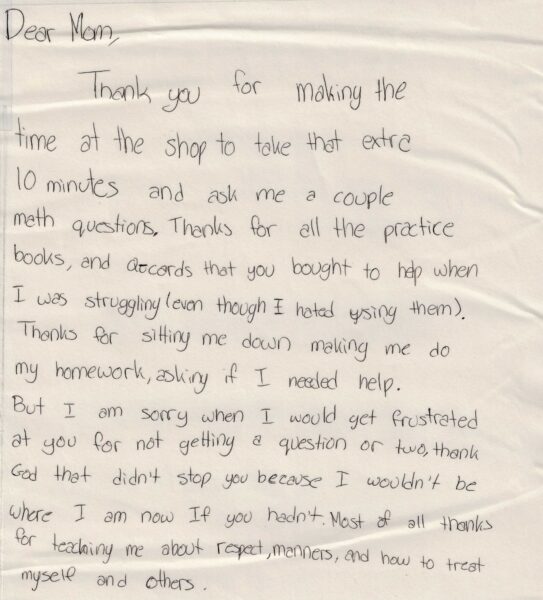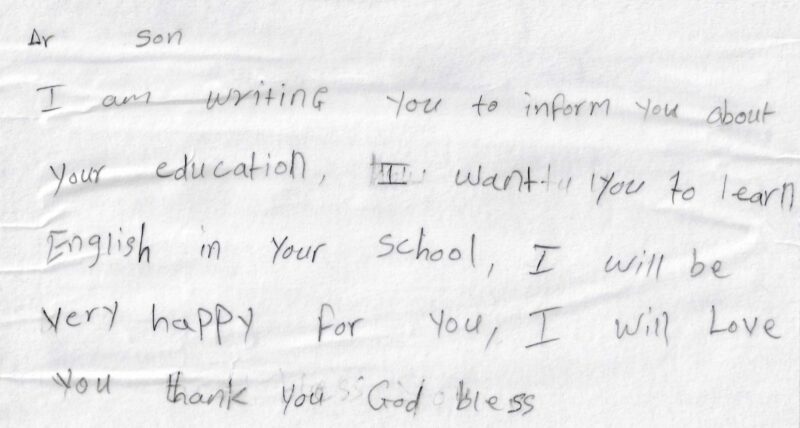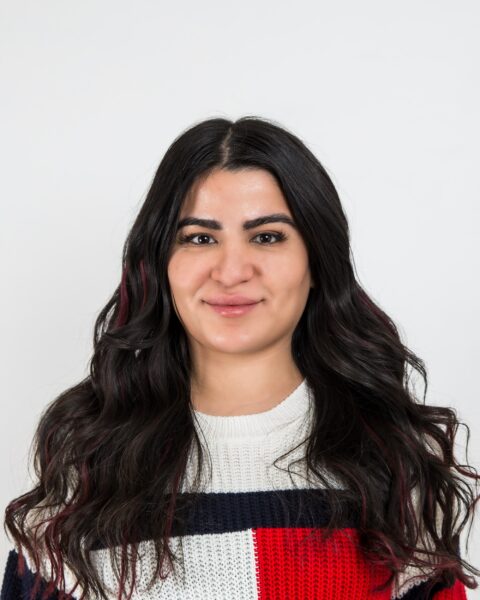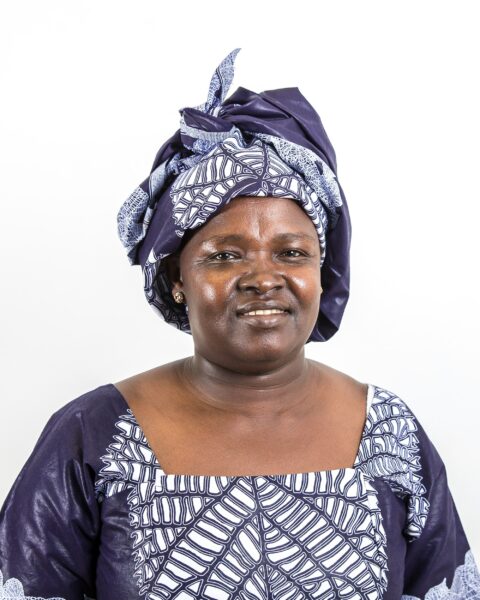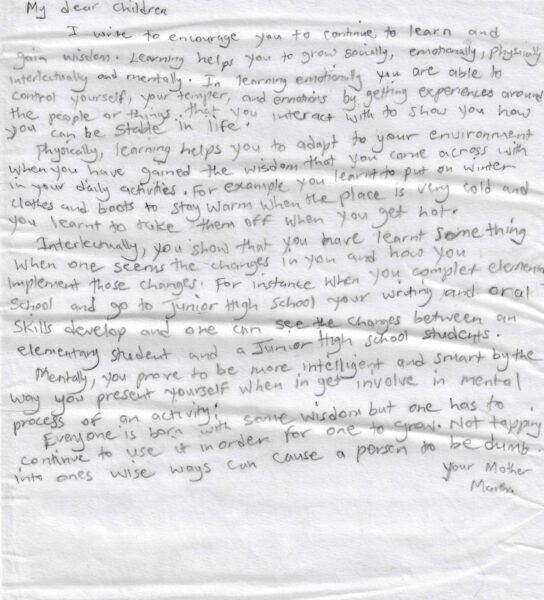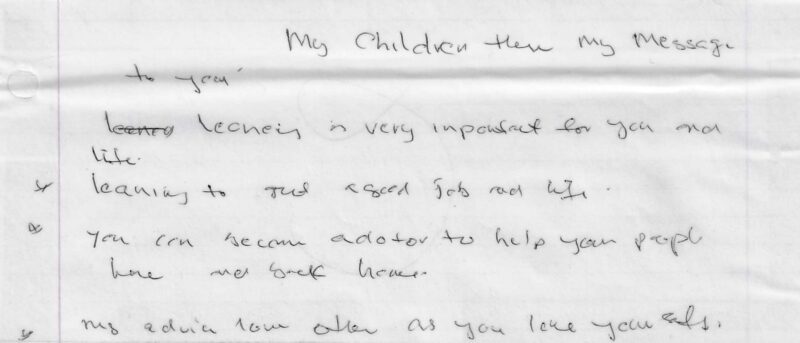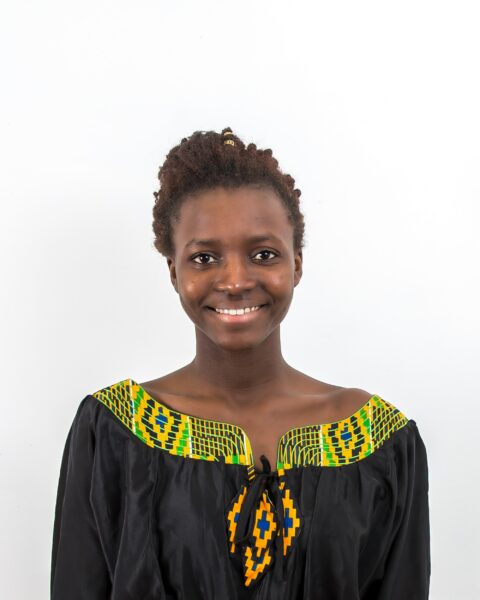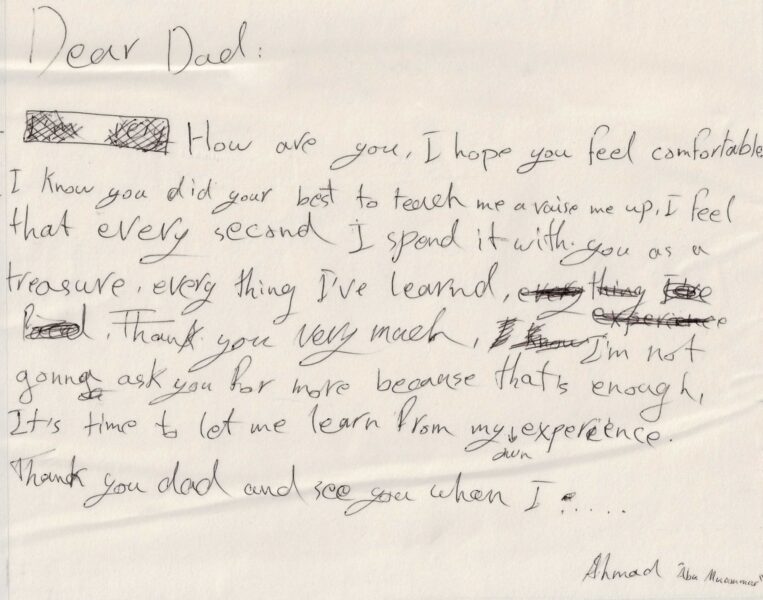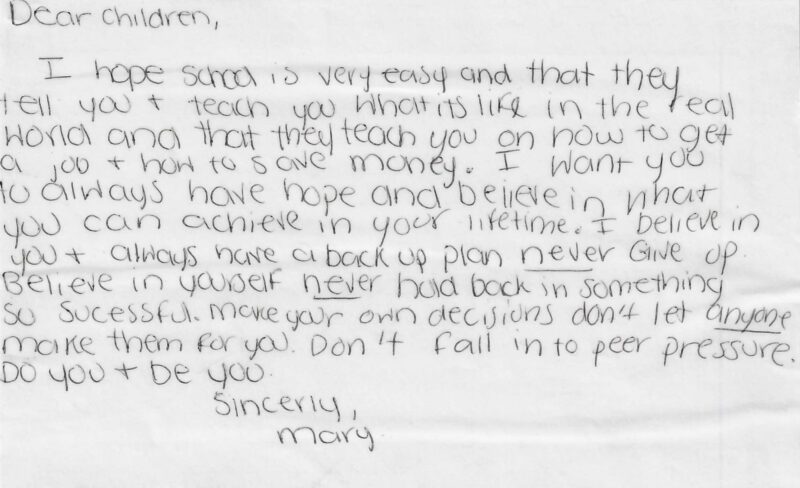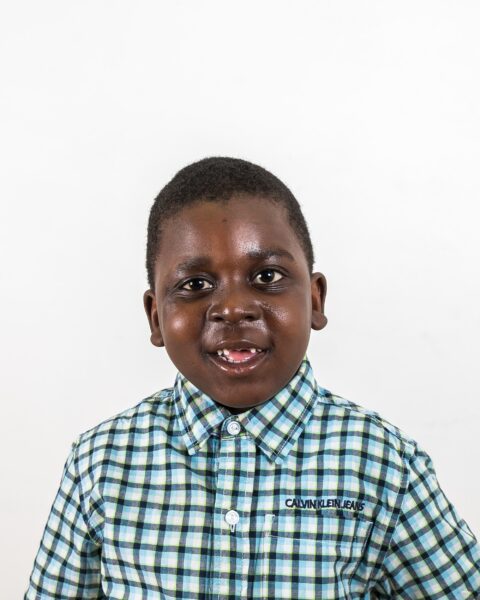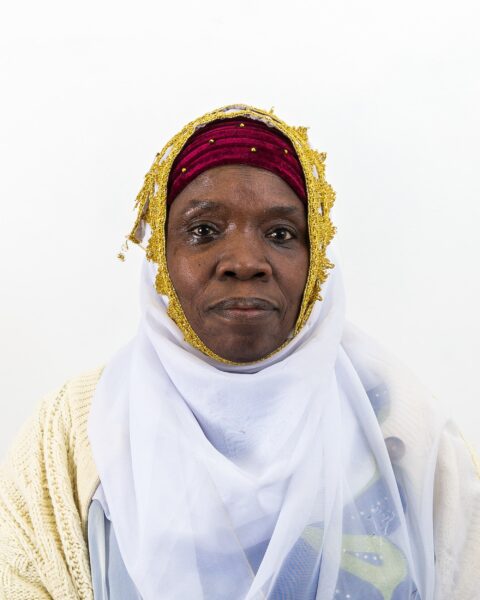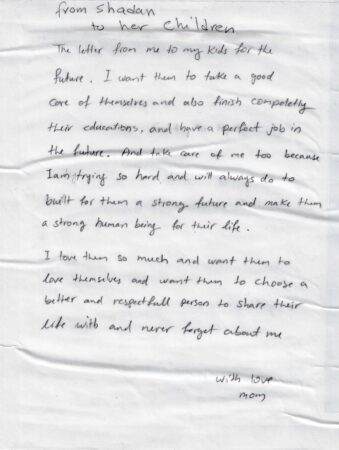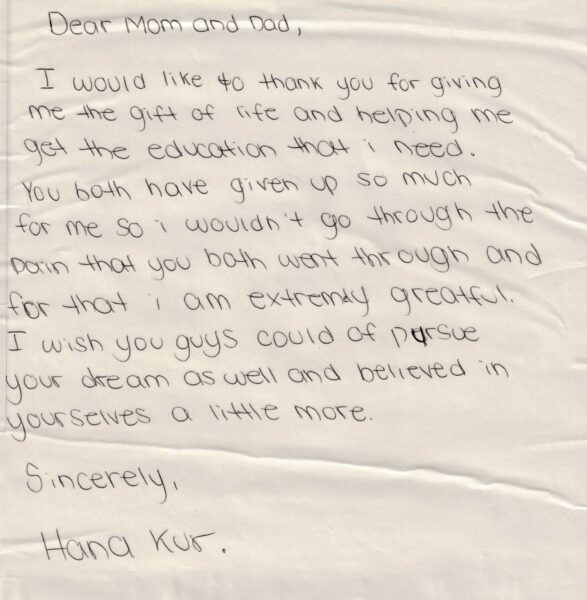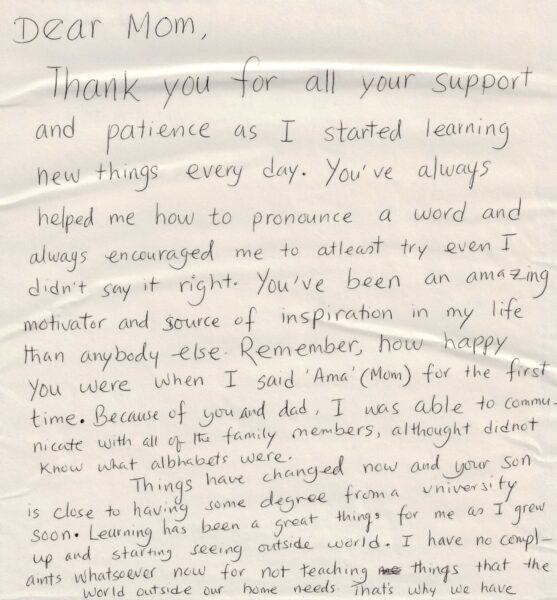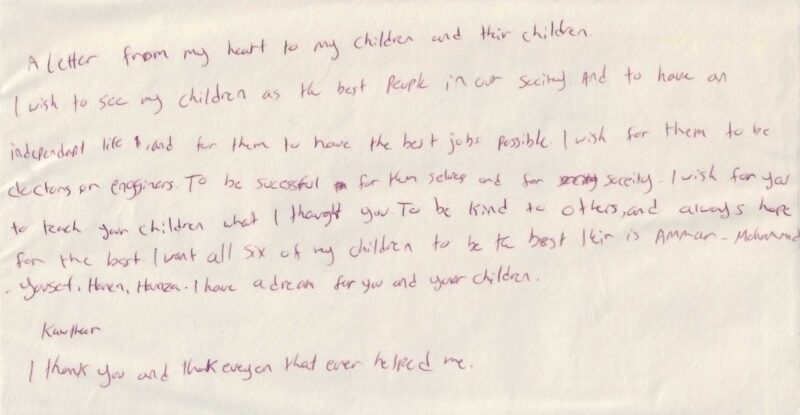Learning
Apprentissage
تعليم
Taalim
Lan
خوێندن
सिकाइ
ምምሃር/ምስልጣን
We are the sum total of our learning experiences.
We begin learning from an early age. We learn how to eat, walk, talk, and play. As we get older we may step into formal education through reading, writing and arithmetic at school. We learn from our mothers, fathers, uncles and aunties the social skills and norms of our communities, in hopes of being productive and prosperous.
For many who become displaced from their home, this process begins again when arriving in a new place.
We all have thanks to give to our elders for the learning they made possible for us. We all have dreams for our children, and our children’s children. What are your dreams for future learning?
Nous sommes la somme de nos expériences d’apprentissage.
Nous commençons à apprendre en bas âge. Nous apprenons à manger, à marcher, à parler et à jouer. En vieillissant, nous pouvons nous investir dans des études plus officielles par le biais de la lecture, de l’écriture et de l’arithmétique à l’école. Nous apprenons de notre mère, de notre père, de nos oncles et de nos tantes les aptitudes et les normes sociales de nos communautés, dans l’espoir de devenir productifs et prospères.
Pour bien des personnes qui doivent quitter leur chez-soi, ce processus recommence en arrivant dans un nouvel endroit.
Nous devons tous remercier nos aînés de nous avoir permis d’apprendre. Nous avons tous des rêves pour nos enfants et pour les enfants de nos enfants. Quels sont vos rêves d’apprentissage futurs?
نحن مجموع تجاربنا التعليمية
نبدأ التعلم منذ سن مبكرة. نتعلم كيف نأكل، ونمشي، ونتحدث، ونلعب. مع تقدمنا في السن، قد ننتقل إلى التعليم الرسمي من خلال القراءة والكتابة والحساب في المدرسة. نتعلم من أمهاتنا وآباءنا وأعمامنا وخالاتنا المهارات الاجتماعية والأعراف في مجتمعاتنا، على أمل أن نكون منتجين ومزدهرين.
بالنسبة للكثيرين الذين نزحوا من منازلهم، تبدأ هذه العملية مرة أخرى عند وصولهم إلى مكان جديد.
علينا جميعًا أن نشكر كبارنا على التعلم الذي أتاحوه لنا. لدينا جميعًا أحلام لأطفالنا وأطفال أطفالنا. ما هي أحلامك للتعلم في المستقبل؟
Nina mojuma ma taalam na mini al kebira
Itaalam na fi umur al bediri. Ita alam na kef na akulu, kef na wanusu wa nep.
Nakina ni wakbar.
Kulama taqadamna fi alsini katua ila ta alim alrasmi kilal giraya, kitaba, wa al ilmi kisab fi madarasa. Ni alim min abukat, uma, aemam, halat wa maharat itimaiya mutumaat na el amal intakun muntija wa musdekira.
Akter alejina min biyuto kum, haja al ijraat tabda ila amakin al jedida
Nakina be sukur anas bita ina al humon amulu mustekil taalim na. Kun na indina kelim ila atfal na wa atfal atfal na.
Ma kilmak le mustakbal al taalim?
Nar we sef de make we laning experiences
We don begin Iam from dea tem wae den born we. We lan how for eat, waka, tok en play. As we dea big nar so we go go school en lan for read, write, en do mathematics. We Ian from we Mama dem, we papa dem, we Uncle dem en we Aunty dem dea wae wae dae nar we communities dem with dea hope say den go Bette. Bokku way bin runaway cammot nar den ose den go do the same work again nar den new place.
We tell den big wan dem tenki for way den mak we Ian. We all get dreams for we pikin dem en we pikin den yone pikin. Watin nar de dream wae you sef get for tumara for Ian
ئێمە کۆی تەجروبە زانستیاکانمانین.
لە منداڵیەوە فێری زانیست دەبین، رۆێشتن، نان خواردن.
کاتێک کە گەورە دەبین لەوانەیەخوێندنی فەرمی دەست پێ بکەین، وەک نوسین و خوێندنەوە و بیرکاری لە مەکتەب. لە دایک و باوکەوە فێر دەبین لە مام و پورەوە فێر فێری داب و نەریت دەبین بە هیوای ببینە ئەندامێکی باش و بەرەو پێش برۆین.
بۆ زۆربەمان کە دور دەکەوینەوە لە نێشتمان، ئەم پرۆسەیە دەست پێ دەکاتەوە جارەکی تر لە دوای گەیشتن بە خاکە نوێیەکە.
دەبیت هەمومان سوپاسی باو باپیرانمان بکەین بۆ ئەو فێر کاریەی کە فەریان کردین، وە ئێمەش هیوا خوازین بۆ وەچەکانمان.
هیوای تۆ چییە دەربارەی خوێندن بۆ داهاتو؟
हामी हाम्रो सिकाइ अनुभवहरुको योगफल हौं ।
हामी सानै उमेरदेखि सिक्न थाल्छौं । हामी खाना खान, हिड्न, बोल्न र खेल्न सिक्छौं । हामी उमेर बढ्दै जाँदा पढाइ, लेखाइ र अंकगणितको माध्यमबाट औपचारिक शिक्षाकोलागि विद्यालयमा प्रवेश गर्छौ । हामी उपयोगी र समृद्ध हुने आशामा हाम्रा आमा, बुबा, काका र काकीहरुबाट हाम्रो समुदायको सामाजिक सीप र मानदण्डहरू सिक्छौं । घर छाडेर विस्थापित हुने धेरैका लागि भने यो प्रक्रिया नयाँ ठाउँमा पुग्दा फेरि सुरु हुन्छ ।
हाम्रो निम्ति सम्भव बनाएको शिक्षाको लागि हामी सबैले हाम्रा अग्रजहरूलाई धन्यवाद दिनु पर्दछ । हामी सबैसंग आफ्ना छोराछोरी र उनीहरुका सन्ततिका लागि सपनाहरू छन् । भविष्यमा सिक्ने तपाइका सपनाहरु के के हुन्?
ንሕና ድምር ናይ ትምህርትናን ተመኩሮታትና ኢና።
ካብ ቁልዕነትና ኢና ክንመሃር ንጅምር። ከመይ ጌርና ከም እንበልዕ፣ ከም እንንከይድ፡ ከም እንዛረብን ከም እንጻወትን ንመሃር። እናዓበና ምስ ከድና ከኣ ኣብ ቤት ትምህርቲ ብንባብ፣ብምጽሓፍን፣ ስነ-ቁጽሪን ናብ ወግዓዊ ትምህርቲ ክንኣቱ ንኽእል ኢና። ካብ ኣዴታትና፡ ኣቦታትና፡ ኣኮታትናን ኣሞታትናን ሓትኖታትናን ማሕበራዊ ክእለታትን ስርዓታትን ማሕበረሰባትና ንመሃሮ፡ ኣፍረይትን ውጽኢታያን ክንከውን ዓብይ ተስፋ ይግበረልና።.
ኵላትና ንሽማግለታትና ስለቲ ዝረኸብናዮ ትምህርቲ ኸነመስግኖም ይግብኣና ። ኵላትና ንደቅናን ንደቅናን ሕልሚ ኣሎና ። ኣብ መጻኢ እንታይ ክትመሃር ኢኻ እትምነ ?
Learning
Apprentissage
تعليم
Taalim
Lan
خوێندن
सिकाइ
ምምሃር/ምስልጣን
- When it comes to ‘learning,’ what do you wish for your future generations?
- If you could have changed how you were educated would you have changed?
- À quelle forme d’apprentissage souhaitez-vous que vos générations futures aient accès?
- Si vous pouviez changer la façon dont vous avez appris, que changeriez-vous?
- عندما يتعلق الأمر بـ “التعلم”، ما الذي تتمناه لأجيالك القادمة؟
- لو كان بإمكانك تغيير طريقة تعليمك هل كنت ستتغير؟
- Eindama yataealaq al ‘amr bimaerifat ma aladhi tatamanaan lijilik almustagabil?
- Lo kan biamakhanik tagyir tarqat taelimik hal kunt satataghayar?
- Whose kind form of laning wae you de wish for we pikin dem tumara?
- If you bin wan change how you lan watin you for don change?
- کە بابەت دێتە سەر فێربوون داخوازیت چیە بۆ فێربونی نەوەی داهاتوو ؟
- گەر لە توانات هەبوایە چت شتێکت دەگۆڕی لەو شتانەی کە لە ڕابردوو فێری بووی ؟
- जब ‘सिकाई’ को कुरा आउँछ, तपाईं आफ्ना भावी पुस्ताहरूका लागि के चाहानु हुन्छ?
- यदि तपाईं कसरी शिक्षित हुनुभयो भन्ने कुरा परिवर्तन गर्न सक्नुहुन्थ्यो भने तपाईं के परिवर्तन गर्नुहुन्थ्यो?
- ብዕባዛ ትምህርቲ ዝምልከት ፡ ንዝመጽእ ወለዶ እንታይ ትምነ ፧
- እቲ ዝተማሃርካሉ ናይ ትምህርቲ ኣገባብ ክትቅይሮ እንተ ትኽእል ምቐየርካዮ’ዶ ፧
